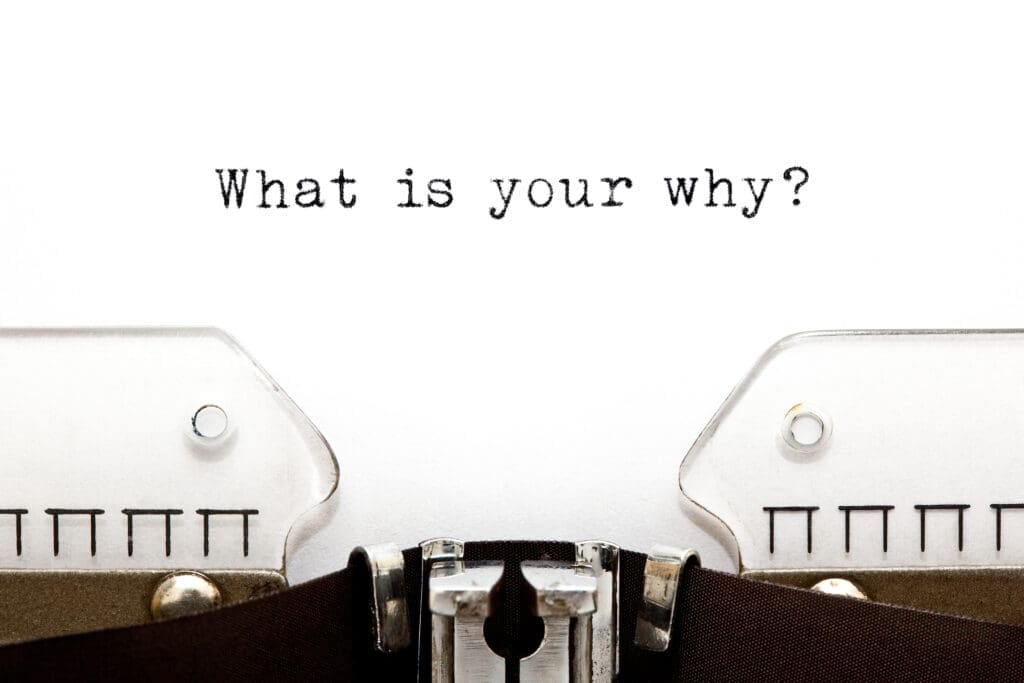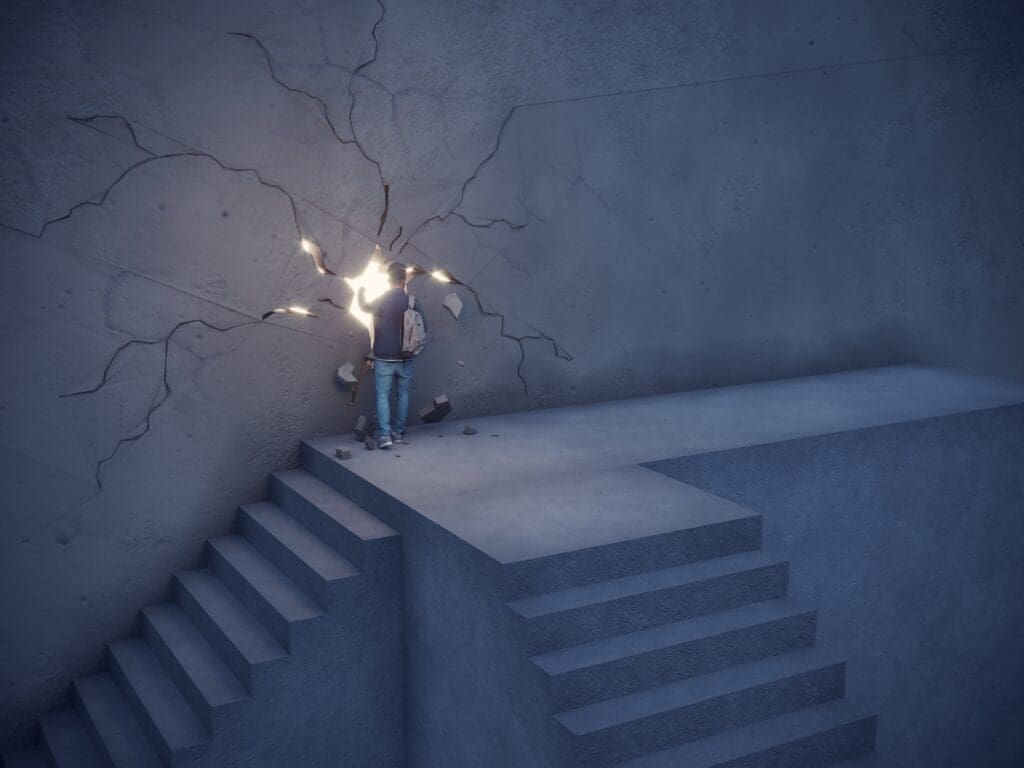*This article is free from all forms of artificial intelligence chatbot utilization*
Before we dive in on how childhood deconstruction is the best way to discover an authentic you, let’s cover some basic understanding.

What is childhood conditioning?
Each one of us came into this existence as a blank canvas. Our parental figure(s) or mentor(s) held all the paint brushes for our early years.
Stroke by stroke, they taught us how to create our regional communication noises (speech), perfect our regional accent, how to write down our regional communication symbols (writing), how to eat, how to dress, how to interact with others, how to process the existence around us, and what to believe or not to believe.
Many of our parents or mentors painted us just like someone else painted them. Generational art created by past down strokes of good qualities, bad qualities, and misinformation along with accurate information.
However, it doesn’t matter if they painted you how their parents painted them or if they chose to paint you the opposite of their childhood training.
Either way, we had absolutely zero say in the early creative process.
We unwillingly became a living piece of art that someone else envisioned.
Our educated generation is becoming more and more aware of this reality and we are taking back control over our lives.
We are reevaluating our raised thinking, redefining our raised way of life, and reassessing our raised habits and rituals.
What is childhood deconstruction?
I’ll use a simple example to break down the childhood deconstruction process.
Whenever someone sneezes, there is a high chance that someone else close by will say, “bless you” or “god bless you”.
I was raised to respond with either anytime that someone sneezed. In fact, responding to a sneeze was up there with table manners training and other societal conditioning.
In my culture, responding to someone’s sneeze is a deeply ingrained habit that is damn near automatic. Odin forbid that we don’t respond to a sneeze, and some can get offended without that vocal acknowledgement.
One day, in my 34th year or so, I was browsing news articles when I came across an intriguing title- “Why we say ‘bless you’ when someone sneezes“.
Little did I know at the time, but by clicking open that article I kickstarted a massive deconstruction period in my journey.
For those that do not already know this history, it turns out that long ago many cultures thought that a sneeze was the body expelling its soul. By immediately saying “god bless you”, the theory was that a vocal gesture would protect the soul from being snatched by the devil.
Today, we understand that this was (and still is) superstitious nonsense. Yet all these years later, many still respond to someone’s sneeze with, “bless you”, or something similar.

Upon learning this modern awareness, some will shrug it off and keep saying, “bless you” to a sneeze. After all, this is what many of us were conditioned to do.
To some, it just won’t matter that this is an inaccurate and outdated habit/mindset/ideology. This is the script that someone passed down to us in our early development, so just fucking stick to it.
However, many others will learn of this modern awareness and take cognitive action to deconstruct what’s inaccurate and realign to accuracy.
For myself, upon reading that article on the origin of the sneeze response, I then stopped partaking in this superstitious practice of responding to someone’s sneeze with “bless you”.
Instead, I might respond to a sneeze with a conversation-starter on allergies. Or if the sneeze is violent or repetitive, I may inquire if the person is alright.
But most of the time, I now say absolutely nothing at all. For there’s no need to comment after someone’s natural body function.
Responding to a sneeze is the simplest example that I can use to explain the concept of childhood deconstruction.
Although many raised ideologies/ways of life may need deconstructing, not all of our childhood programming was negative.

Some of our early conditioning was essential
Certain things that we were trained to do/think/say from our early development do not need deconstruction!
Much of our young conditioning was necessary societal domestication:
- how to clothe/understanding the need for clothing
- how to use utensils/cook/feed ourselves
- the need for schooling/importance of education
- how to properly interact with other living creatures
- how to speak and write in sync with our home language
- the importance of proper hygiene
- how to earn and use money
- understanding laws and why they are in place
- importance of physical and mental health/adherence to science and medicine
This is the blueprint for early development. These are the core fundamentals needed to go out and stay alive in our modern world.
In addition to these basics, many of us picked up positive soft skills from our parent(s) or mentor(s) as well.
Unfortunately, there are many unnecessary and inaccurate ideologies and lifestyle choices that some adults programmed into us in our impressionable early stages.

We must deconstruct inaccurate conditioning to reach our full potential
Much of the inaccurate and unnecessary early training is generational and/or cultural behaviors and beliefs that are instinctively passed down.
It’s that default life script, remember?
But today, with modern awareness, updated knowledge, and scientific advancements, we can now break cycles of autopilot and deconstruct any misinformation passed down.
Here are the more popular of inaccurate and misinformed human habits, rituals, and ideologies that many of us may have been influenced into from an early age:
Ignoring gene behavior – many “whys” to our cognitive functioning can be answered by addressing the roots of our behavioral genes. Many of us were raised with little to no awareness of this and told that “we just are the way we are, deal with it.”
Today, we can be proactive and make use of counseling, scientific understanding, and medication to help our brain function most efficiently.
Toxic cooking/eating habits– we all eat shit food from time to time, but some were raised to consume toxic food all day every day.
Our knowledge of unhealthy foods and toxic ingredients is continually updating. Studies confirm that previous generations had worse eating habits and less nutritious options than today.
There’s a high chance that if we are going to the same restaurants that our parents or grandparents raised us with, we could be putting poisonous foods into our body.
There’s a high chance that if we are preparing the same meals (using similar ingredients) that our parents or grandparents trained us, we could be continually damaging our physical and mental health.
Religion/faith– nature, animals (including us), the planet and the greater cosmos are the only actual, factual, proven realities of life and existence.
What is not real are all the made-up gods (including yours if you are a believer), made-up after death realms, made-up concepts of sin, made-up deities, made-up judgments/life limitations, made-up abusive rhetoric, and made-up superstitions.
These made-up, fantasy-based concepts remain no more real than elves, ferries, and santa claus.
Being indoctrinated into a religion/faith from a young age is inaccurate brainwashing.
Children haven’t strengthened their critical thinking skills and ability to reason with logic. Therefore, children should not be programmed into exclusive ways of life and thinking.
This only builds barriers around a child’s brain, and severely suffocates their crucial need for autonomy and open-mindedness.
For those that were conditioned into a religion/faith (or introduced to one later in life), it may be in your best interest to deconstruct out of it and discover alternative avenues to community and dopamine.
Nationalism/exceptionalism/racism– Many humans around the world are raised to believe that their country or culture or ethnicity or skin tone or religion is better/greater/more privileged than another’s.
This childhood conditioning is complete bullshit.
We all have to deconstruct back to the absolute truth that all words are made-up. Therefore, all countries/country lines, ethnic identity, religions/faiths, cultural ideologies, human names, even color names (like black and white) are all 100% made-up from creature lung puffs and hand scribbles.
Everything is innately nothing.
This constructive nihilism forces us back to empathy, collectivism, and the peaceful understanding that we just are. Life just is.
Anything beyond that is unnecessary and inaccurate raised thinking and behavior.
Situational rituals, habits, reactions– In our most influential years it was little human see, little human do.
We are products of our raised environment.
We learned from our parent(s) or mentor(s) how to respond to conflict, to adversity, and much more.
Did they turn to the sky (pray) or increase their religious rituals? Did they turn to alcohol or drugs or another vice? Did they shut down? Internalize? Manipulate others? Gaslight others? Self-sabotage?
Many of us adults can be unaware of just how much we act like our parent(s) or mentor(s) when put in challenging or uncomfortable situations. Many of us are completely unaware of our childhood trauma and negative coping habits or patterns.
Of course, some situational rituals, habits, and reactions that we learned from our childhood can be healthy and mature.
However, many of us absorbed some(or many) rituals, habits, and reactions that are emotionally immature and regressive to our relationships, self-improvement, and societal success.
Now that we understand the need for a childhood reevaluation, how can we go about covering up someone’s inaccurate influence and repaint ourselves with strokes of modern accuracy and progressive awareness?
How to deconstruct inaccuracy and find the real you

1) Unpack the “whys”
First, we have to explore the “why” behind our conditioned actions/beliefs/mindsets.
“Why do I believe in the particular faith/religion that I do? Why do I do ritualistic things at a church or mosque and pray to things not objectively real?”
“Why do I act this way?”
“Why do I think this way?”
“Why do I eat this way? Why do I like this particular sports team or play this specific sport? Why do I speak this way, or have this specific accent? Why do I vote for this political party? Why do I partake in certain holiday rituals?”
“Why do I say “bless you” after someone sneezes?”
You see? I could go on and on. The opportunity for self-evaluation is plenty.
Again, what we witness as children is what we will emulate. Over and over, year after year.
We are products of our raised environment.
After questioning all of our “whys”, we may discover that many of our opinions and operating procedures are 100% authentic to us! As we grow up, we do form our own lifestyle choices and cognitive processing.
However, be wary of what is accurately defined as “your own”.
Religion is the perfect example to use here.
Let’s say that someone grew up in a faith based household. After maturing into adulthood, this individual decides to do/think differently than their parents did within their faith umbrella.
This can be changing denominations. This can be moving away from raised fundamentalism/traditionalism and being more progressive in a faith-based lifestyle. This can be modifying doctrine and ritualistic ways to fit modern times. This can even be moving from their raised faith to an entirely different faith altogether.
Still, all of the above are not truly “one’s own”.
Despite changes, this still falls under the overarching umbrella of “religious thinking/faith-based ways”.
Despite changes, to remain involved in religious thinking/faith-based ways in any shape or form whatsoever still shows an allegiance to raised programming.
This breakdown can apply to all of our “whys”.
We can ask ourselves, “Is this mindset/action truly my own created umbrella? Or just a different mindset/action still underneath someone else’s umbrella created for me?”
Our first step to discovering our authentic self is to do a full examination of all of our “whys”. We have to decipher what is accurate and what is inaccurate from our childhood.
From there we can deconstruct and build authenticity accordingly.

2) Leave the past alone
No one likes to realize and then come to grips that they were duped.
When deconstructing inaccurate childhood conditioning, there will be emotions of anger, resentment, confusion, and grief.
These heavy feelings are in fact healthy and necessary to truly deconstruct and build your own life.
I spent a good 3 years deconstructing many inaccurate ideologies and toxic habits from my childhood. In fact, by the time I was done disassembling everyone else’s inaccurate umbrellas that were created for me, I had very few mindsets and ways of life leftover that were truly my own.
In this very painful and confusing period, I lashed out too much and too often at those that were involved in my young conditioning.
This only fueled more rage and conflict.
Then, through counseling and seeking advice from deconstruction survivors, I learned these accurate realities:
- It is important to understand that our parent(s) or mentor(s) most likely didn’t wake up every morning and think, “How can I fuck my kid up today?”
- Those that trained us didn’t purposefully tangle a bunch of cords for us to one day painstakingly learn to unravel.
- We must remember that our parent(s) or mentor(s) trained/conditioned/guided us out of the knowledge and awareness that they possessed at that given time.
- Those that raised us weren’t perfect. They weren’t all-knowing. And they, just like everyone else, were navigating their own complicated journey and personal evolution themselves.
It is good to acknowledge the inaccurate childhood conditioning and then deconstruct forward. Just remember that it is not healthy to simmer in the past.
Instead, acknowledge the good soft skills, healthy habits, and accurate ideologies that your parent(s) or mentor(s) did program into you.
Let them know what they did right and what you are thankful for. Then quietly deconstruct what is needed and be content knowing that you have an incredible opportunity to grow and evolve for the better.

3) Establish your authentic self
The longer that we continue in inaccurate habits/mindsets/ways of life, the harder it becomes to address. The longer that we operate out of known or unknown trauma, the harder it becomes to change our lifestyle.
It is easier to fix a young-ish adult than to repair an older adult.
The sooner that we can evaluate our childhood and deconstruct inaccuracies, the quicker that we can experience a higher quality of life.
But we can’t just strip everything away and then navigate life mentally naked. There has to be a cognitive re clothing process.
This step varies on the individual at hand. This step also varies on how much one has to deconstruct or what is specifically being deconstructed.
However, there are some core things to consider during the rebuilding phase:
- Not everything needs to be replaced – if it is religion/faith that one is deconstructing from, you don’t have to believe in an alternative. Remember this absolute truth- everyone is born atheist until influenced otherwise. You can simply go right back to how you authentically were before conditioning. Just alive and affiliated to nothing. Same with politics or nationalism. You don’t have to switch parties or find another patriotic obsession. It is perfectly fine to just deconstruct and then simply not give a shit about these things anymore.
- Changing situational habits, reactions, and rituals takes time – in all reality, deconstruction is a life-long process. Reversing anything takes a lot of time and practice. Similar to quitting an addiction, deconstruction requires counseling/personal therapy and developing healthy routines and coping habits. Just remember, the “re-finding you” phase will take time. So go slow and be patient on yourself.

We must do that quality check on someone else’s product (us)
We all operate out of our childhood coding to a degree.
It’s never too late to pause and do a thorough quality check-
“Was my raised environment healthy or unhealthy? Was I programmed to operate/think with accurate or inaccurate coding? Am I a quality product from my childhood environment or do I need some serious internal renovations?”
Deconstruction is the best way to find personal freedom and discover our authentic self.
Over time, as individuals around the world deconstruct inaccuracies and rebuild, entire societies will do the same. This collective process will begin to shift our world further away from conflict and outdated ways.
Through global deconstruction we will build exceptional self-awareness, emotional maturity, strong mental health, and progressive lifestyles for the generations that follow.


